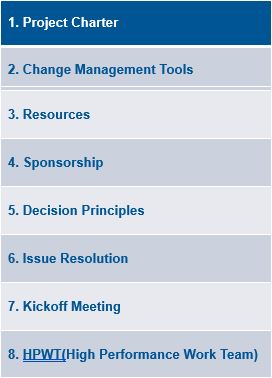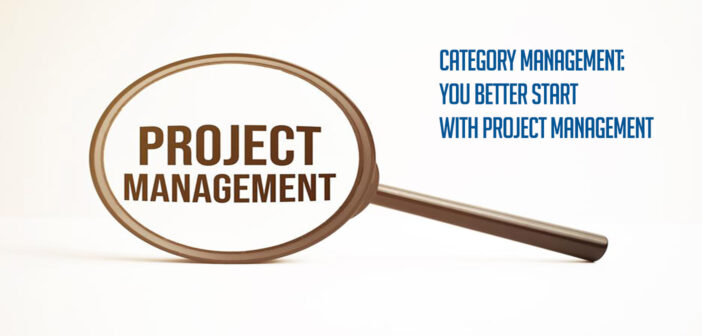You remember the old proverb: For want of a nail, the kingdom was lost? Similarly, lack of good solid Project Management will doom the best laid Category Management (CM) strategies. We are often surprised how often Category Managers and teams don’t have the basic competencies of Project Management and then thy wonder why they are often off track, late, over budget, short on results, frustrated etc. etc. And the solution can often be found in fundamentals of Project Management. We have yet to find a client competency model that emphasizes this critical competency and sometimes we have a hard time convincing the client to include it – it leaves us perplexed. The one reason often cited is that it is considered such a basic skill that is is assumed that everyone has it. Nothing could be further from the truth – otherwise the vast body of knowledge, the professional certifications and the career of Project Managers would not exist. Yet, it is assume that this is only for functions like IT or engineering.
So, here’s a bold headline: Project Management (Particularly Initiation/Launch) will Make or Break Category Management. Everything that makes a project successful is necessary in Category Management and how a CM initiative is launched pretty much bakes in the success or failure. Here is a simple yet very effective Launch template that we developed for a client (yours may vary):
So now every single CM event uses the same exact Launch Plan and this also forms the exit criteria for this gate. It has led to a significant improvement in their outcomes and the credibility of the CM organization.
Proper project planning serves many purposes throughout the various stages of the CM event and here are some of them:
BEFORE:
- Identifies breadth of effort
- Establishes success factors
- Time frames
- Cost
- Scope
- Deliverables
- Formally asks for resources
- Direction to team
- Provides team key milestones
- Focuses on Adoption
DURING:
- Keeps the team focused
- Compares actuals vs. planned baselines to avoid surprises
- Monitors milestones achieved
- Allows the team to set a cadence
- Focuses on Adoption
AFTER:
- Becomes a learning document
- Assists future teams performing similar projects
- Focuses on Adoption
And here are some of the common elements of any Project Plan
Deliverables: What are we going to achieve
Milestones: What are major reporting points
Progress: What is the current status and when will the project be done
Communication: How, when, and who will convey key information about the project
Cost: Are costs being managed and controlled to sustain the project through completion
Resources: Are we consuming resources as expected
Adoption: How do we ensure deliverables are sustained
Stakeholder Engagement: How are we involving stakeholder in key project decisions and expected outcomes
Requirements: How we get sign-off and validation on the specifications
Risk: How will we incorporate risk management activities
Legal: How and when will we engage with our legal department
Scope Management: How can we be responsive to change but stay true to our course
Quality: How are we maintaining the expected levels of quality
You would agree that all of these are Key Questions that are Predictable and Inevitable and therefore MUST be answered during the Launch phase – otherwise they will come back and bite you, you know where.
While all of this may sound very basic and not worth focusing on, the exact opposite is actually true. So make sure your teams have all the nails needed to succeed and Project Management is a critical one?


